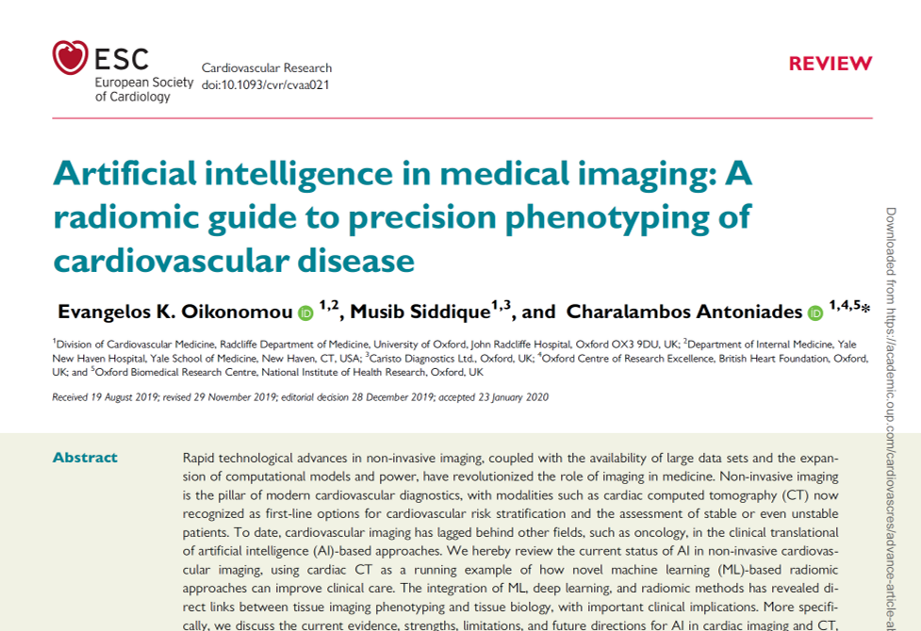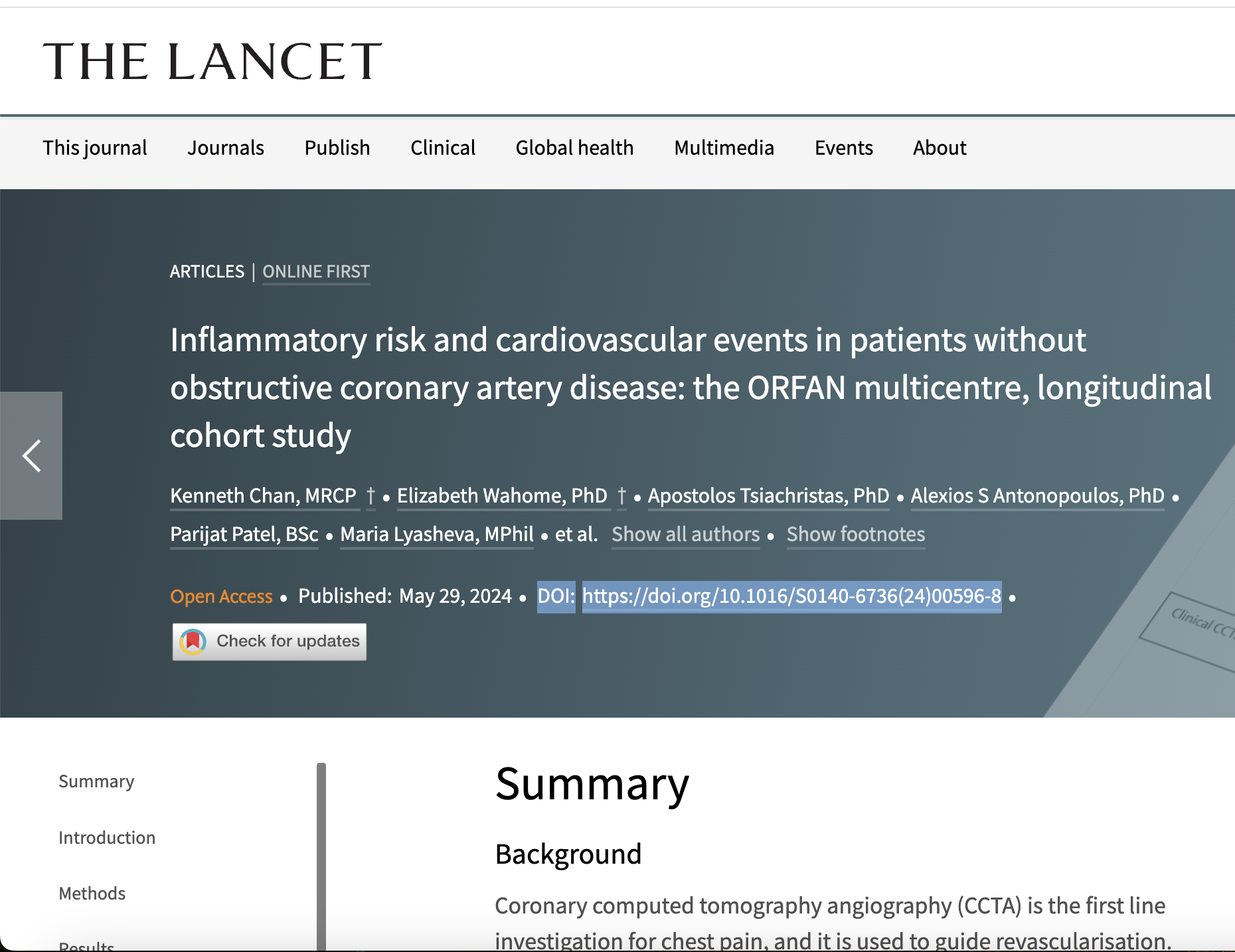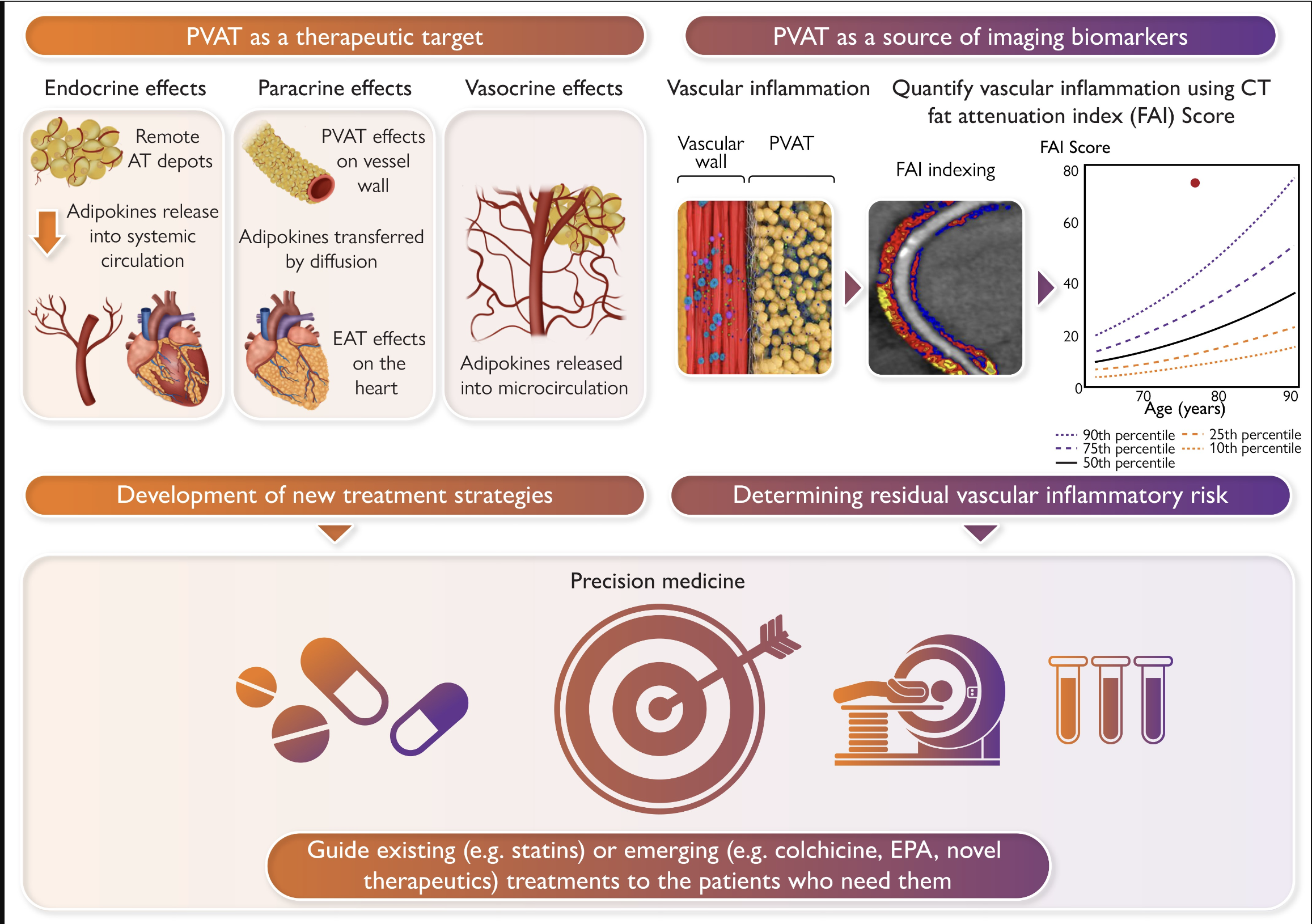Artificial Intelligence in Medical Imaging: A Radiomic Guide to Precision Phenotyping of Cardiovascular Disease

Rapid technological advances in non-invasive imaging, coupled with the availability of large data sets and the expansion of computational models and power, have revolutionised the role of imaging in medicine. Non-invasive imaging is the pillar of modern cardiovascular diagnostics, with modalities such as cardiac computed tomography (CT) now recognised as first-line options for cardiovascular risk stratification and the assessment of stable or even unstable patients.
To date, cardiovascular imaging has lagged behind other fields, such as oncology, in the clinical translational of artificial intelligence (AI)-based approaches. We hereby review the current status of AI in non-invasive cardiovascular imaging, using cardiac CT as a running example of how novel machine learning (ML)-based radiomic approaches can improve clinical care. The integration of ML, deep learning, and radiomic methods has revealed direct links between tissue imaging phenotyping and tissue biology, with important clinical implications. More specifically, we discuss the current evidence, strengths, limitations, and future directions for AI in cardiac imaging and CT, as well as lessons that can be learned from other areas.
Finally, we propose a scientific framework in order to ensure the clinical and scientific validity of future studies in this novel, yet highly promising field. Still in its infancy, AI-based cardiovascular imaging has a lot to offer to both the patients and their doctors as it catalyses the transition towards a more precise phenotyping of cardiovascular disease.


